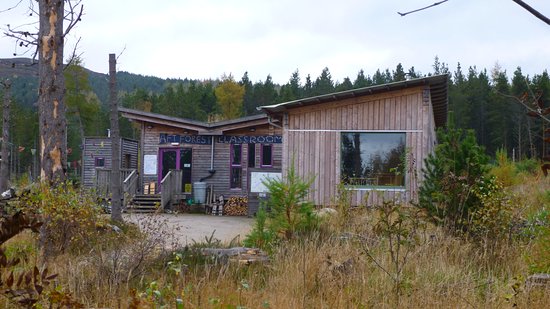The context is a battle between kings with Abram’s
nephew, Lot, caught in the crossfire. Abram assembled a posse and pursued the
army that had taken Lot. He wins back everyone and everything taken and more. The King of Salem, Melchizedek, shared bread and wine
with him, accepted a tenth of the plunder and gave Abram a blessing. The King
of Sodom wanted his people back but was happy for Abram to take the plunder.
Abram chose to accept nothing - “I swear to God, The High God, Creator of Heaven and Earth, this solemn
oath, that I’ll take nothing from you, not so much as a thread or a shoestring.
I’m not going to have you go around saying, ‘I made Abram rich.’
It seems to me that sometimes we are of the opposite
mind. We are not content to take nothing. We want the thread or the shoestring
and what they are attached to. We are perhaps too little concerned about who
gets the credit for our flourishing in this world.
Just as success and triumph tells us a lot about what is
in people, I think failure and defeat also tell us a lot too.
Solomon in Proverbs 30:7-9 has it right. "I ask two things from you, Lord. Don't refuse me before I die. Keep
me from lying and being dishonest. And don't make me either rich or poor; just
give me enough food for each day. If I have too much, I might reject you and
say, 'I don't know the Lord.' If I am poor, I might steal and disgrace the name
of my God.”
I have not been on the success and triumph side of things
lately. A reading plan that I am following tells me not assume it’s all an
attack from the devil.
A few weeks ago, I had a tyre blow out. There was a
roundabout turn, a lurching to the left and a loud unpleasant noise. I pulled
in to a carpark – the Beefeater on the road out to Loch Ness from Inverness.
They, Beefeaters, were still serving breakfast, so leaving me to deal with the
car rescue company, my husband sat down to read a paper and eat a full fry
up. The rescue man arrived. I am
probably in the minority when it comes to knowing how to change a tyre. Had I known,
I wouldn’t have been able to anyway. Some part of the wheel had welded to some
part of the axel and a few slams with a hammer were required to dislodge the
wheel – a few slams – bag slams. I didn’t have a hammer.
Anyone coming at me with a hammer and slamming it against
me – that’s definitely an attack. The rescue man slamming his hammer against
the wheel of my car – that’s not an attack at all. The man is rescuing me, nit
attacking me. Not everything that looks like an attack is an attack.
The failure and defeat days do not come as a surprise to
God. He is not the cause of the failure or defeat. He didn’t make them happen
but He permits them because they serve a greater purpose – that revealing “what
is in him” – whether it’s to the person themselves or to the watching audience.
With the failure and defeat days there is also an equipping. These things don’t
always come out of the blue to a person not prepared. We get to test the
equipping and discover that God is more than enough. There is always the
opportunity to sit down, to weep and wail, and get battered – but that is not
God’s preferred option. He loves it when we raise to our full height, stare the
disaster in the face and wield the weapons we have been given.
Let me tell you about my weapon of choice – the one that
I am wielding right now. Poetry! It’s not other people’s poetry, but the ones I
am writing now.
It’s Lent. I am almost half way through my poem a day
Lent challenge. You would think that all the poets, myself included, have
harvested every Lent-prompted poem going by now. I am following a Lent
devotional that promised me an honest and realistic recognition of where I am in
relation to where I should be. My life isn’t pretty and there’s no spiritual cosmetic
surgery to make it so. I must deal with what is, not with what I would like it
to be.
The failure and defeat days happen – but I’m still mid-story.
The end has yet to be revealed. So, that’s what my poetry has been about.
God in the Dark
Seeds scattered on the soil of sorrow
Loved ones lamented and lost
A prayer that wasn’t answered
A hope that disappointed
A miracle never bestowed
And God? Where is He? Nowhere?
Watch. Do nothing and
The seeds bear fruit
Bitterness. Resentment.
Blame assigned to He who
Chooses not to defend Himself
But watch. Take heart. Trust
The narrative is only half told
God’s best story involves struggle and
There’s a twist that comes at the end
Victory spits in the face of defeat
God knows the inside of a tomb and
It cannot contain Him
He knows the taste of death but
It cannot sting
Now are the everlasting arms
Wrapped securely round
Now the whispered promises of
A happy ending
His compassion and salvation
Now and always
